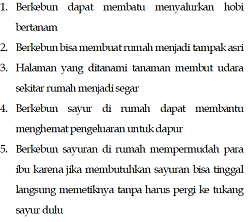Sosialisasi Pentingnya Urban Farming sebagai Ketahanan Pangan Keluarga pada Era New Normal Socialization of the Urban Farming Urgenity as Family Food Security in New Normal Era
Main Article Content
Abstract
At the end of 2019, the world was shocked by the emergence of the Covid-19 outbreak, which on May 17, 2020, totaled 4,719,812 cases with 312,215 people dead and 1,811,611 patients who have recovered, and every day the number of victims continues to grow. Within a few months since it was discovered, the Covid-19 virus, which stood for Coronavirus Disease and was discovered in 2019, has made the world experience many changes from various sectors. Almost all people in the world feel the fear of this plague. Posyandu Melati is an Integrated Service Post located in the Sawangan area, Depok. The health workers from the local Puskesmas (Community Health Center) usually carry out routine activities related to the health and empowerment of the surrounding community. During the Covid 19 pandemic, many routine agendas had to be postponed or canceled due to the PSBB (Large-Scale Social Restriction) policy. Posyandu cadres and health workers still want to help the community and carry out positive activities to help people in this pandemic era. To spark their desire to initiate local communities in carrying out urban farming activities, it is necessary to conduct socialization about urban farming. Urban farming, in general, is better known as vegetable farming in the yard, which can be done hydroponically or with soil. They need information about the benefits of urban farming to help people maintain food security for their families by growing their food crops in their home yards.
Downloads
Article Details
Authors who publish with this journal agree to the following terms:
- Any article on the copyright is retained by the author(s).
- Author grant the journal, right of first publication with the work simultaneously licensed under a Creative Commons Attribution License that allows others to share work with acknowledgment of the work authors and initial publications in this journal.
- Authors are able to enter into a separate, additional contractual arrangements for non-exclusive distribution of published articles of work (eg, post-institutional repository) or publish it in a book, with acknowledgment of its initial publication in this journal.
- Authors are permitted and encouraged to post their work online (e.g., in institutional repositories or on their websites) prior to and during the submission process, as can lead to productive exchanges, as well as earlier and greater citation of published work.
- The article and any associated published material is distributed under the Creative Commons Attribution-ShareAlike 4.0 International License
References
Fauzi, A.R., Ichniarsyah, A.N., Agustin, H. 2016. Pertanian Perkotaan: Urgensi, Peranan, Dan Praktik Terbaik. Jurnal Agroteknologi. 10(1):49-62.
Lakner, S. 2020. Effects of Coronavirus on Agricultural Production – a First Approximation (part 2). https://www.arc2020.eu/effects-of-coronavirus-on-agricultural-production-a-first-approximation-part-2/
Majid, M.A. 2021. COVID-19 di ERA 4.0, Disrubsi dalam Disrubsi: Bertahan di Tengah Pandemi Antara Gangguan dan Inovasi. ASANKA: Journal of Social Science and Education. 2(1):46-67. https://doi.org/10.21154/asanka.v2i1.2525
Margiono, M.A. 2020. What Might Post-Covid-19 Business Strategies Look Like? https://bbs.binus.ac.id/2020/04/what-might-post-covid-19-business-strategies-look-like/
Martin, V. 2020. Mitigating the Impact of COVID-19 on the Agriculture Sector in China. https://research.nus.edu.sg/eai/wp-content/uploads/sites/2/2020/03/EAIC13-20200325.pdf
Poudel, P.B., Poudel, M.R., Gautam, A., Phuyal, S., Tiwari, C.K., Bashyal, N., Bashyal, S. 2020. COVID-19 and its Global Impact on Food and Agriculture. Journal of Biology and Today’s World. 9(5):221.
Shah, K.K., Modi, B., Gautam, K., Lamsal, B., Pandey, H.P., Tiwari, I., Shrestha, J. 2020. Impacts of the COVID-19 Pandemic on Agriculture and Economy of Nepal. Agricultural Sciences Journal. 2(2):41-65.
Soeharto, T.N.E.D. 2020. Pendampingan Kader Bina Keluarga Lansia (BKL) Mugi Waras Dusun Blendung Desa Sumbersari Moyudan Sleman DIY: di Tengah Wabah Pandemi Covid 19. Covid-19 dalam Ragam Tinjauan Perspektif. Yogyakarta: MBridge Press.
World Food Programme. 2020. WFP Chief warns of hunger pandemic as COVID-19 spreads (Statement to UN Security Council). https://www.wfp.org/news/wfp-chief-warns-hunger-pandemic-covid-19-spreads-statement-un-security-council
